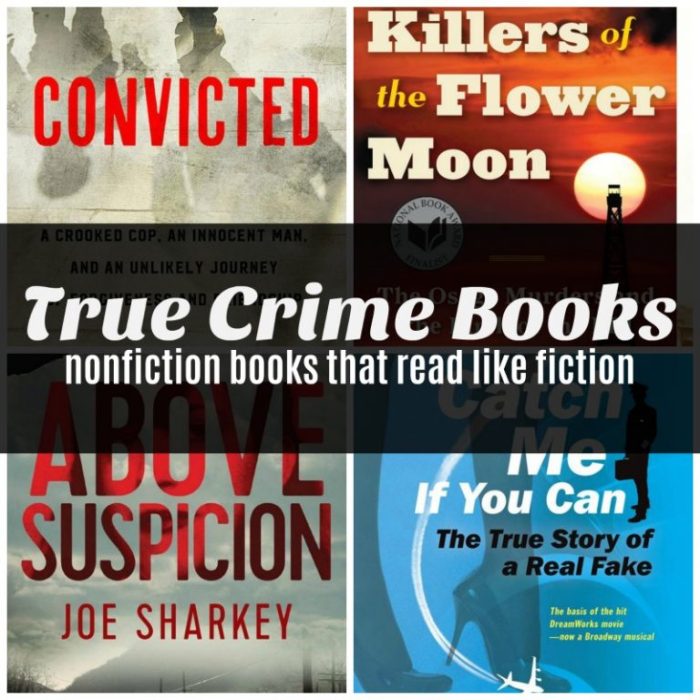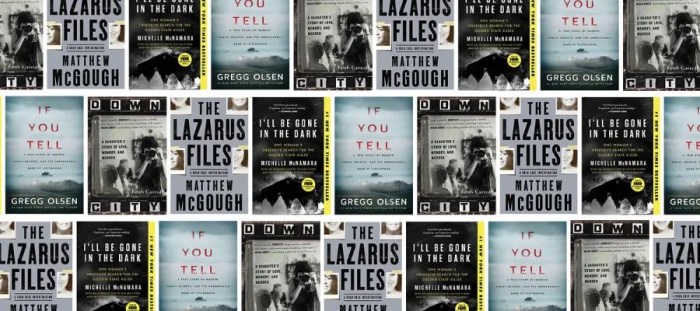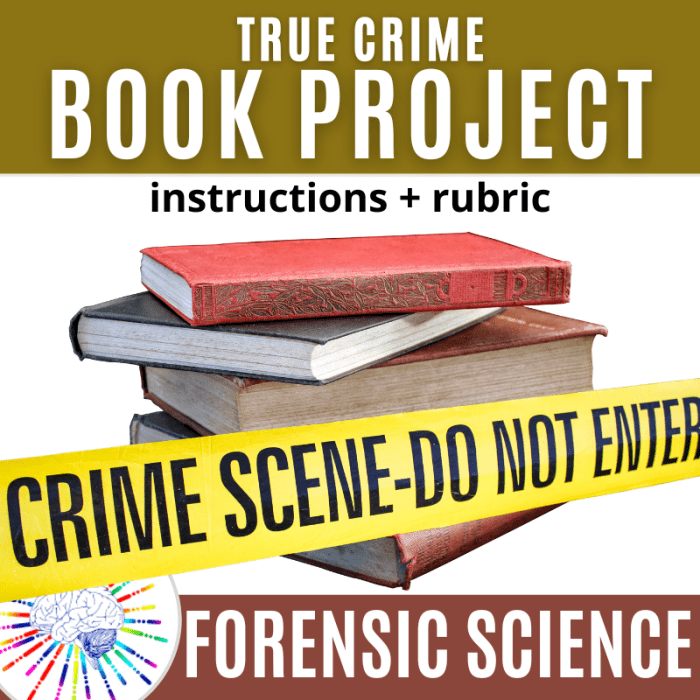
True crime books have become a fascinating genre that draws readers into real-life mysteries and the darker sides of humanity. These narratives not only recount chilling events but also delve into the psychology behind crime, making them both engaging and thought-provoking.
This genre has seen a surge in popularity over the last decade, with numerous bestselling titles emerging that highlight shocking true stories and the individuals involved. By examining these books, we can uncover the compelling themes they present and the unique perspectives they offer on crime and justice.
Popular True Crime Books

True crime books have gained immense popularity over the last decade, captivating readers with their intricate narratives and chilling real-life events. These books delve into the minds of criminals, the investigations that ensued, and the societal implications of these heinous acts. The genre offers a blend of suspense, psychological insight, and often, a critique of the justice system.The following five bestselling true crime books have made significant impacts, resonating with audiences through their compelling storytelling and in-depth analysis of crime and punishment.
They not only recount events but also explore the human psyche behind such acts, often providing social commentary on broader issues.
Top Five Bestselling True Crime Books
Here’s a look at the top five bestselling true crime books from the last decade, showcasing their main themes and reader reviews:
- I’ll Be Gone in the Dark by Michelle McNamara
- In Cold Blood by Truman Capote
- The Devil in the White City by Erik Larson
- American Predator by Maureen Callahan
- Mindhunter by John E. Douglas and Mark Olshaker
These books exemplify the range of the true crime genre, weaving gripping tales of real events that keep readers on the edge of their seats.
Main Themes and Narratives
Each of these bestselling titles presents unique themes that resonate with readers:
- I’ll Be Gone in the Dark: Focuses on the pursuit of the Golden State Killer, blending a personal narrative with investigative research. McNamara’s obsession with the case provides an intimate look at the impact of crime.
- In Cold Blood: An early true crime masterpiece that details the brutal murder of the Clutter family in Kansas. Capote explores the psychology of the killers, offering profound reflections on morality and humanity.
- The Devil in the White City: Interlaces the stories of the 1893 Chicago World’s Fair and the infamous serial killer H.H. Holmes. Larson’s narrative showcases how ambition and evil can coexist in history.
- American Predator: Chronicles the life of serial killer Israel Keyes, examining the investigation that led to his capture. This book highlights the complexities of criminal behavior and the challenges investigators face.
- Mindhunter: Provides insights from former FBI agent John E. Douglas, detailing his work in criminal profiling. It explores the psychological aspects of violent crime and its prevention, shaping modern criminal investigations.
Reader Reviews and Highlights
Readers have found these titles not only engaging but also enlightening, as they often spark discussions about justice and morality. Here are some highlights from reader reviews:
“I’ll Be Gone in the Dark is hauntingly beautiful—McNamara’s writing draws you in and leaves you with a chilling sense of the unknown.”
“In Cold Blood reshapes how we think about crime and its consequences. Capote’s narrative style is unmatched.”
“The Devil in the White City combines history and horror in a way that is both educational and entertaining.”
“American Predator is a deep dive into the mind of a killer, and it’s fascinating how Callahan unpacks Keyes’s methods.”
“Mindhunter gave me a new perspective on criminal psychology. Douglas’s experiences are riveting and thought-provoking.”
The Appeal of True Crime

True crime books have an undeniable charm that captivates readers from various walks of life. The intricate psychological elements behind this fascination reveal why these stories resonate so deeply. From the horror of real human experiences to the exploration of the human psyche, the appeal of true crime is multi-faceted and profound.Numerous psychological factors contribute to the allure of true crime stories.
The thrill of engaging with dark narratives allows readers to confront their fears in a safe environment. By immersing themselves in tales of real-life crime, individuals can explore the boundaries of morality and justice. This genre serves as a lens through which readers can examine societal issues, such as inequality and the complexities of human behavior. Furthermore, it can evoke a sense of empowerment as readers gain insights into the legal system and the psychology behind criminal behavior.
Demographic Readership Differences
The readership of true crime varies significantly across different demographics, influenced by factors such as age, gender, and cultural background. The following points highlight these differences:
- Women are often the predominant audience for true crime books, drawn to the emotional narratives and psychological depth often presented in these stories.
- Millennials and Gen Z readers are increasingly engaging with true crime, particularly through podcasts and social media, as they seek entertainment that combines education with suspense.
- Older generations may gravitate towards classic true crime narratives that shed light on historical cases, reflecting their interests in both history and crime.
- Cultural background can also impact readership, as specific communities may have a heightened interest in crimes that resonate with their experiences or societal issues.
Impact on Public Perception of Crime and Justice
True crime books significantly influence public perception of crime and the justice system. These narratives often shape readers’ understanding of criminal behavior and societal responses. Key impacts include:
- Increased awareness of societal issues: True crime stories often highlight systemic injustices, such as racial profiling and inequality in the legal system.
- Shaping fear and perception of crime: Many readers develop skewed perceptions of crime rates and the dangers present in their communities, often influenced by sensationalized portrayals.
- Empathy towards victims and families: True crime narratives can foster a deeper understanding of the emotional toll on victims and their families, encouraging empathy and advocacy for justice.
- Interest in reform and advocacy: Readers may be motivated to engage in criminal justice reform efforts after being exposed to stories that reveal flaws within the system.
“True crime books not only entertain but also challenge our understanding of morality, justice, and the human condition.”
Notable True Crime Authors
True crime literature has been shaped by a diverse group of authors who bring their own unique perspectives and storytelling techniques to the genre. These writers delve into the darker aspects of human nature and society, using thorough research and compelling narratives to engage readers. Their contributions have not only popularized true crime but also influenced how it is perceived in both literary and media contexts.Several notable authors have made significant impacts in true crime literature, each with distinctive styles and methodologies.
Their works often reflect their investigative approaches and personal philosophies about crime and justice. Below is a comparison of some of the most influential true crime authors and their unique contributions to the genre.
Biographies and Writing Styles of Renowned True Crime Authors
The following table summarizes the biographies and notable writing styles of prominent true crime authors:
| Author | Biography | Writing Style |
|---|---|---|
| Truman Capote | Born in 1924, Capote’s groundbreaking work “In Cold Blood” (1966) is often credited with establishing the modern true crime genre. | Capote’s style combines immersive narrative and detailed character development, blending fiction techniques with factual reporting. |
| Ann Rule | Ann Rule, an author and former police officer, gained fame with her book “The Stranger Beside Me” (1980), which tells the story of her friendship with serial killer Ted Bundy. | Rule’s writing is characterized by a straightforward, empathetic approach, often delving into the psychological aspects of her subjects. |
| Michelle McNamara | The late McNamara gained acclaim for her work “I’ll Be Gone in the Dark,” which explored the unsolved Golden State Killer case and was published posthumously in 2018. | Her style is noted for its meticulous research and haunting prose, blending personal narrative with investigative journalism. |
| Joe McGinniss | McGinniss is known for his books like “Fatal Vision” (1983), which chronicles the murder case of Jeffrey MacDonald. | His writing often exhibits a blend of thriller-like pacing with a journalistic approach, emphasizing suspense and moral complexity. |
The evolution of true crime literature can be observed through the works of these authors. Capote’s pioneering narrative in “In Cold Blood” set a new standard for the genre, challenging the boundaries between journalism and literature. Ann Rule’s psychological insights brought a more personal touch to the narrative, emphasizing the human stories behind the crimes. Michelle McNamara’s work highlighted the influence of digital research and social media, showcasing how modern investigative methods can engage the public in solving cold cases.
Joe McGinniss’ narrative techniques paved the way for future authors to blend storytelling with in-depth analysis, making true crime both informative and captivating.Through these varied approaches, true crime authors have enriched the genre, transforming it into a platform for exploring societal issues, human psychology, and the concept of justice.
Final Conclusion

As we wrap up our exploration of true crime books, it’s evident that their allure lies in the intricate blending of fact and storytelling. These works not only entertain but also challenge our understanding of crime and its impact on society, leaving readers both informed and captivated.
Expert Answers
What makes true crime books so popular?
True crime books captivate readers by exploring real-life mysteries, the psychology of crime, and the complexities of justice, offering an intriguing glimpse into the darker aspects of human nature.
Who are some famous true crime authors?
Notable true crime authors include Truman Capote, Michelle McNamara, and Ann Rule, each bringing their unique storytelling approach to the genre.
How do true crime books affect public perception of crime?
These books often alter public perception by highlighting specific cases and social issues, influencing how society views crime and justice.
Are true crime books based on real events?
Yes, true crime books are grounded in actual events, detailing real crimes, investigations, and their consequences.
Can true crime books provide insight into criminal behavior?
Absolutely, many true crime books analyze the motives and backgrounds of criminals, offering valuable insights into their behavior and societal factors contributing to crime.





